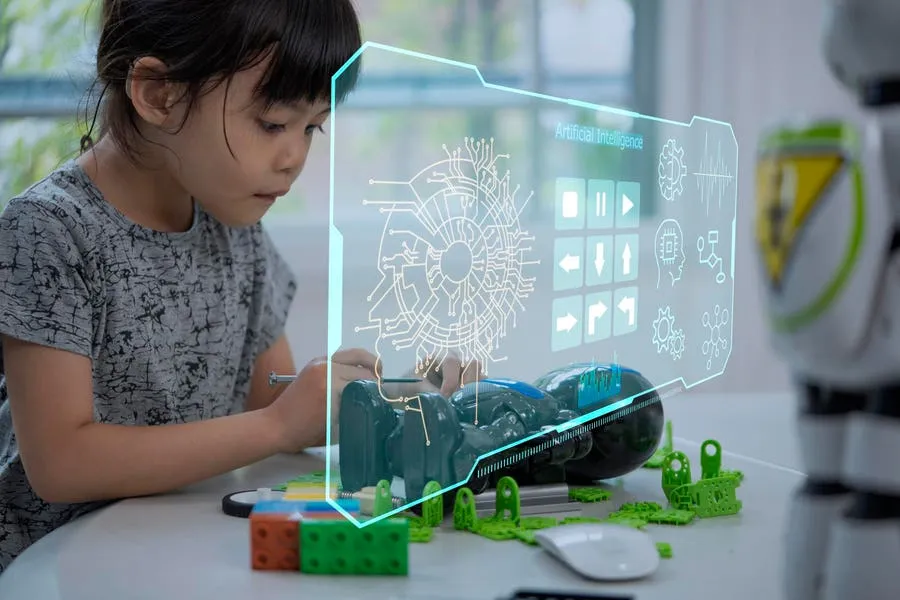Forbes contributors publish independent expert analyses and insights.
Consumer superintelligence isn't a phrase many people are familiar with, but could be the latest talk of the tech world after Mark Zuckerberg's recent superintelligence memo. The race for superintelligence, including in the consumer space, is heating up between talent wars and multi-billion dollar investments. But it is still opaque what consumer superintelligence actually is.
Superintelligence has been defined as AI that surpasses human intelligence. Nick Bostrom, philosopher, author of the book Superintelligence: Paths, Dangers, Strategies, and founder of the Future of Humanity Institute, describes it as "machine brains that surpass human brains in general intelligence." But much of the media narrative today around superintelligence focuses on business and job displacement. Consumer superintelligence is focused on solving problems for the consumer, whether it's aimed at productivity, entertainment, or social connection. The two companies at the forefront of the consumer superintelligence space are OpenAI and Meta.
Ben Thompson, tech analyst and Stratechery founder, has called OpenAI an "accidental consumer tech company" in the Stratechery newsletter and podcast. He's also bullish on the dominance of ChatGPT in consumer AI. On June 23, 2025 he said, "ChatGPT has won the consumer AI space, and is more likely to extend its dominance than to be supplanted." They are going beyond just a chat interface and APIs with their acquisition of Jony Ive's startup, io, that builds AI-powered hardware products. This could pose them to dominate both the software and hardware product spaces in the AI race. OpenAI's core charter has always been centered on achieving artificial general intelligence (AGI), which is loosely defined, and often inclusive of superintelligence. So when OpenAI reaches superintelligence, it will be no surprise if they build on the foundations of products like ChatGPT or even Operator with their superintelligence models for the consumer space.
Meta has been making aggressive hiring and investment moves in its ambitions to build superintelligence. In the hiring realm, they brought Scale AI founder and CEO, Alexandr Wang, on board in June and have been poaching top AI talent from OpenAI, Google, and others with offers of $100 million and more, according to Wall Street Journal sources. They stated in their 2025 second quarter earnings that they expect their 2026 capital expenditures to remain similarly significant "as we continue aggressively pursuing opportunities to bring additional capacity online to meet the needs of our artificial intelligence efforts." Meta's recent memo explicitly states that its vision is to bring personal superintelligence to everyone.
Om Malik, veteran entrepreneur, tech journalist, and investor, pointed out on his blog that Meta's real product is the "graph of human attention and relationships." While Meta hasn't announced any specific features or new products powered by superintelligence, it's not hard to imagine they see it as a pathway to holding human attention and enhancing, even sometimes supplementing those human relationships. In Meta's own words, that looks like "[helping]
Both have paths to empower other companies in the ecosystem to build consumer superintelligence products beyond their own journeys in the race to superintelligence. Famously, many startups in both the B2B and B2C spaces use OpenAI's APIs. When they reach superintelligence, existing and new consumer tech startups will be able to harness the power of those models themselves, assuming that OpenAI keeps a similar business model to their existing one. As for Meta, it is unclear if they would allow anyone to use their superintelligence models when they are built. However, their Llama models are open source for now, even if that doesn't end up being one of the avenues that they deliver superintelligence. It's entirely possible based on their aim, that their superintelligence will be solely used to keep users engaged on their platforms.
It will be interesting to see what alliances form as consumer superintelligence emerges. Apple could partner with OpenAI for a superintelligent connected home to rival what Google would be able to do in the consumer space. Google could be well positioned for this era with a strong history in connected hardware devices from the Google Watch and Google Home, and a long history in the lead with AI, even if they lost some of that edge recently. Smart appliances could become "super-smart" if integrated into an internet of things home system powered by superintelligence models.
As Meta and OpenAI race toward their own visions of superintelligence and consumer superintelligence emerges, the real test will be how consumers adopt them, and if it can drive growth and revenue for their business. According to a study by NextMSC, the consumer AI market is anticipated to be $674.49 billion by 2030. The companies that succeed in this space will reshape how consumers interact with technology, create new categories, new business models, and more. The question isn't whether to pay attention to this space, but how to prepare for its arrival.
